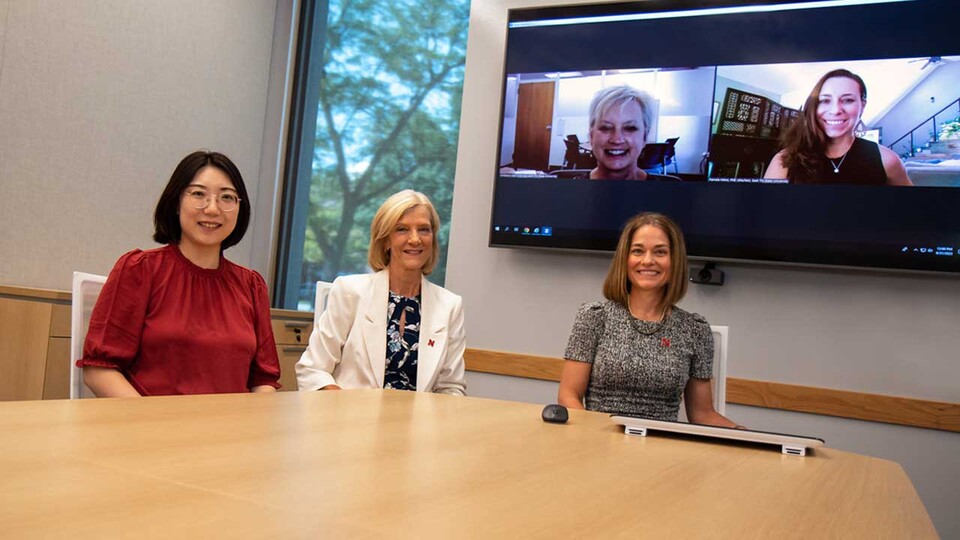Center for Research on Children Youth Families and Schools
Chuck Green, October 2, 2023
Nebraska researchers extending TAPP intervention to Appalachia
Students who struggle with social and behavior issues are at high risk of developing long-term problems, both at school and in life.
When those students live in rural parts of the country, with limited access to behavioral health services, those challenges can significantly increase.
Amanda Witte, research assistant professor at the Nebraska Center for Research on Children, Youth, Families and Schools, is leading a five-year project to address rural children’s social and behavioral needs using a process known as Teachers and Parents as Partners. The study is designed to test the efficacy of TAPP delivered via distance technology (i.e., tele-TAPP) in rural Appalachian elementary schools.
TAPP is a problem-solving and decision-making intervention developed by CYFS Director Sue Sheridan and other Nebraska researchers that builds on student strengths and fosters collaboration among parents and teachers to enhance students’ academic, behavioral and social outcomes.
The project is funded by a $3.8 million grant from the Institute of Education Sciences. Along with Witte, the research team includes Sheridan and HyeonJin Yoon, CYFS research assistant professor. They will collaborate with researchers from East Tennessee State University, including Pam Mims, professor of special education and associate dean of research and grants; and Kim Hale, associate professor of educational foundations and special education.
Researchers aim to recruit 186 students — kindergarten through sixth grade — with disruptive behaviors. The first cohort of students will likely be in schools in Tennessee and southwestern Virginia, and future cohorts may spread to other states in the region. Participating schools will be randomly assigned to either the intervention condition or the typical classroom “business as usual” model.
“I am excited to work in these communities, where parents and teachers are eager for the opportunity to bolster the family-school partnerships,” Witte said.
A TAPP consultant in Lincoln will deliver the intervention virtually to parents and teachers, and will maintain communication throughout the process with emails and text messages to check in.
Researchers will assess student social-behavioral outcomes at home and school. Teachers will submit standardized measures about the participating students, and parents will report on their child’s behavior at home.
Data will be gathered not only on students’ disruptive behavior, but also on social skills and academic skills — whether they can stay on task and complete their work, for example.
The first student cohort will receive the 12-week intervention in spring 2024. The following four cohorts will span full academic years, beginning in fall 2024. To evaluate the program’s effectiveness, researchers will compare outcomes among students who participate in TAPP with those who do not.
Parent-teacher relationships will also be assessed through surveys.
The project is an extension of a 2020 pilot project funded by an Office of Research and Economic Development Layman Award, which included three students and their parents and teachers in rural Appalachia.
Witte’s research from the pilot found remote-delivered TAPP reduced rural children’s off-task behaviors at school, and that disruptive behavior at home decreased. There were also improvements in parent-teacher relationships and home-school partnerships, and participating parents and teachers rated their TAPP experience via distance technology as high or higher than some of the intervention’s in-person studies.
Sustainability of TAPP is a long-term goal.
“This is another method of making TAPP available,” Witte said. “This will give some flexibility to access TAPP in rural communities that don’t have many educational specialists. Because we’ve done this type of study before, many of the logistical details will be easier. We’ll be able to focus more on local community context and long-term partnerships.”






